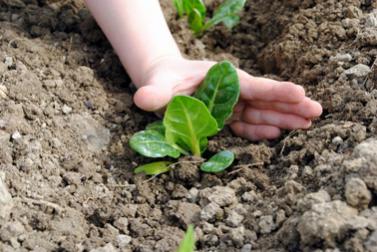
This is the age of clean. The look we want in our homes is pristine and spotless. It goes further than the look, too. We want our kitchens and bathrooms to be antiseptic and deodorized.
That’s not a bad idea, since no one wants to catch salmonella or ecoli. The problem is kids’ lives have been sanitized too, with some surprising negative effects.
Researchers have known for some time that allergies and immune system problems have been on the rise in recent decades. It’s not that we’ve been exposed to new allergens. In fact, the problem seems to be quite the opposite. From childhood, we have been getting less and less exposure to the ‘germs’ in our environment. Living a green lifestyle doesn’t mean we’ll willingly tolerate bacteria, good or bad.
Kids’ lifestyles have changed dramatically in this time period. Instead of being out in the mud, getting dirty and scraping their knees, kids are more likely to be watching videos and playing on their game stations. Parents are less inclined to let their kids run free (with some good reason, perhaps) and swaddle them in cleanliness.
The problem is that the immune system is a bit like a muscle. If you don’t use it, it gets weak and flabby. Studies have shown that children growing up on farms and in rural environments have fewer documented problems with allergies and immune system dysfunction. The best conclusion is that getting dirty and being exposed to allergens, ‘germs’ and the like will actually fortify the immune system.
The immune system works by reacting to potential threats and responding with defensive measures. If it doesn’t encounter the allergens and invaders, it doesn’t have the arsenal of weapons to defend against them from a young age.
It’s not just about kids no longer climbing trees or getting mucky in the stables. Every aspect of life is sanitised. Water is filtered to remove impurities. Food comes washed and packaged. Hand wipes and anti-bacterial soaps stave off all comers. The evolutionary reality seems to be that we’re adapted to a bit of dirt, not to a scrubbed and gleaming, antiseptic environment.
A lifestyle that doesn’t wrap kids in cotton wool could be good for them in all sorts of ways – and for their parents. But what’s the solution? Dropping your children off at the local farm – if there even is one – isn’t going to inoculate them overnight.
There are other easy, longer term steps to take. A green lifestyle, that includes some real contact with nature, will help. Growing your own vegetables or raising chickens could give your kids some exposure to the real world of bacteria, which are very seldom lethal. If that’s not possible, simply buying organic food that hasn’t been washed to death from a farmer’s market could give kids’ immune systems something to work with. When it comes to cleanliness, we need to lighten up and sometimes get down and dirty.

